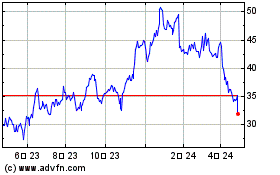Intel Quantum SDK is a full quantum
computing stack in simulation that offers a customizable
development environment for a broad range of developers.
What’s New: After launching its beta version in September
2022, Intel today released version 1.0 of the Intel® Quantum
Software Development Kit (SDK). The SDK is a full quantum computer
in simulation that can also interface with Intel’s quantum
hardware, including Intel’s Horse Ridge II control chip and Intel’s
quantum spin qubit chip when it becomes available this year. The
kit allows developers to program quantum algorithms in simulation,
and it features an intuitive programming interface written in C++
using an industry-standard low-level virtual machine (LLVM)
compiler toolchain. As a result, Intel’s SDK offers seamless
interfacing with C/C++ and Python applications, making it more
versatile and customizable.
This press release features multimedia. View
the full release here:
https://www.businesswire.com/news/home/20230228005657/en/
A photo shows Intel’s fully processed
300-millimeter silicon spin qubit wafer. (Credit: Intel
Corporation)
“The Intel Quantum SDK helps programmers get ready for future
large-scale commercial quantum computers. It will not only help
developers learn how to create quantum algorithms and applications
in simulation, but it will also advance the industry by creating a
community of developers that will accelerate the development of
applications, so they are ready when Intel’s quantum hardware
becomes available.”
–Anne Matsuura, director of Quantum Applications &
Architecture, Intel Labs
About the Intel Quantum SDK 1.0: Version 1.0 of the SDK
includes an intuitive programming interface based on C++, providing
a programming language that’s familiar to classical computing
developers, enabling collaboration between them and quantum
developers. The kit also features a quantum runtime environment
optimized for executing hybrid quantum-classical algorithms.
Developers have the choice of two target backends for simulating
qubits to either represent a higher number of generic qubits or
Intel hardware.
The first backend is a high-performance open-source generic
qubit simulator, Intel® Quantum Simulator (IQS). IQS has a backend
capable of 32 qubits on a single node and more than 40 qubits on
multiple nodes. The second is a target backend that simulates Intel
quantum dot qubit hardware and enables compact model simulation of
Intel silicon spin qubits. Intel’s qubits leverage the company’s
expertise in silicon transistor manufacturing to build a
large-scale quantum computer.
With the SDK, users can develop small workloads to determine
what functionalities are needed from the quantum computer’s system
architecture to run algorithms efficiently and accurately on
qubits. In addition, Intel is using the SDK internally to co-design
quantum hardware and software in tandem, accelerating system
development.
The SDK is a customizable and expandable platform providing
greater flexibility when developing quantum applications. It also
provides for users to compare compiler files, a standard feature in
classical computing development, to discern how well an algorithm
is optimized in the compiler. It allows users to see the source
code and obtain lower levels of abstraction, gaining insight into
how a system stores data.
Additional features include:
- Code in familiar patterns: Intel has extended the
industry-standard LLVM with quantum extensions and developed a
quantum runtime environment that is modified for quantum computing,
and the IQS provides a state-vector simulation of a universal
quantum computer.
- Efficient execution of hybrid classical-quantum
workflows: The compiler extensions allow developers to
integrate results from quantum algorithms into their C++ project,
opening the door to the feedback loops needed for hybrid
quantum-classical algorithms like the quantum approximate
optimization algorithm (QAOA) and quantum variational eigen-solver
(VQE).
- High-performance simulation: Intel® DevCloud users can
build executables capable of simulating applications and algorithms
with up to 32 qubits on a single computational node and more than
40 on multiple nodes.
How Intel is Building a Quantum Ecosystem: Intel is
committed to advancing the quantum computing field and is working
to build a community of developers. As a starting point for this
effort, Intel has provided grants to five universities to develop
quantum course curricula to share with additional universities and
proliferate its use across academia: the University of
Pennsylvania, Technische Hochschule Deggendorf, Keio University,
The Ohio State University and Pennsylvania State University.
Deggendorf Institute of Technology in Munich, Germany, is
utilizing the SDK to explore a fluid dynamics problem important for
aerodynamics and hydrodynamics. In January 2023, Intel hosted an
Intel Quantum Computing Challenge at Deggendorf Institute of
Technology. Submissions explored quantum use cases using the beta
version of the Intel Quantum SDK, including image denoising and
realistic image generation, and solving unstructured search
problems. Leidos, another beta user, is exploring applications like
quantum machine learning, simulation of materials and astrophysics
problems like quantum teleportation, black holes and wormholes.
Here’s what beta testers are saying:
University of Pennsylvania: "The Intel Quantum SDK is
easy to start, and since everything is on the cloud, all I need is
a secure shell client and the simulator will generate very detailed
reports so that I can analyze and debug the kernels I write,” said
Gushu Li, assistant professor, Computer and Information Science
Department.
Deggendorf Institute of Technology: “The Intel Quantum
SDK is a game-changer in the quantum development space because it
readily allows the developer to operate at a level closer to the
hardware for better resource utilization,” said Yaknan John Gambo,
graduate student.
Penn State University: “Intel's Quantum SDK offered a
unique way to apply my knowledge of C to the quantum domain,” said
Jeremie Pope, a student in the Computer Engineering Department.
“It's helped me adopt quantum programming as if it were a classical
language.”
Leidos Innovation Center: “Leidos has enjoyed the
versatility of their hardware-agnostic simulation for software
development and comparative analysis,” said Elizabeth Iwasawa,
Ph.D., quantum technology lead and research scientist. “Even with
the beta version, we explored a broad variety of research topics
from materials modeling and quantum machine learning to theoretical
research into thermofield double states.”
What’s Next: The Intel Quantum SDK 1.0 is available now
on the OneAPI Intel Dev Cloud. In the future, Intel plans to
release new versions of the SDK with added features and will
integrate the SDK seamlessly with Intel’s quantum hardware. To
learn more about Intel’s unique approach to quantum computing, read
Intel’s quantum computing backgrounder.
More Context: Intel Labs | Intel Quantum Computing |
Intel Labs (Press Kit)
About Intel
Intel (Nasdaq: INTC) is an industry leader, creating
world-changing technology that enables global progress and enriches
lives. Inspired by Moore’s Law, we continuously work to advance the
design and manufacturing of semiconductors to help address our
customers’ greatest challenges. By embedding intelligence in the
cloud, network, edge and every kind of computing device, we unleash
the potential of data to transform business and society for the
better. To learn more about Intel’s innovations, go to
newsroom.intel.com and intel.com.
© Intel Corporation. Intel, the Intel logo and other Intel marks
are trademarks of Intel Corporation or its subsidiaries. Other
names and brands may be claimed as the property of others.
View source
version on businesswire.com: https://www.businesswire.com/news/home/20230228005657/en/
Laura Stadler 1-619-346-1170 laura.stadler@intel.com
Intel (NASDAQ:INTC)
過去 株価チャート
から 3 2024 まで 4 2024

Intel (NASDAQ:INTC)
過去 株価チャート
から 4 2023 まで 4 2024
